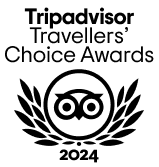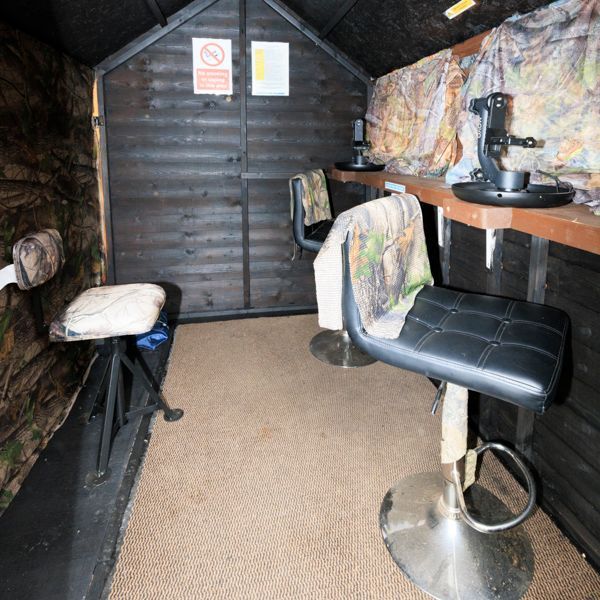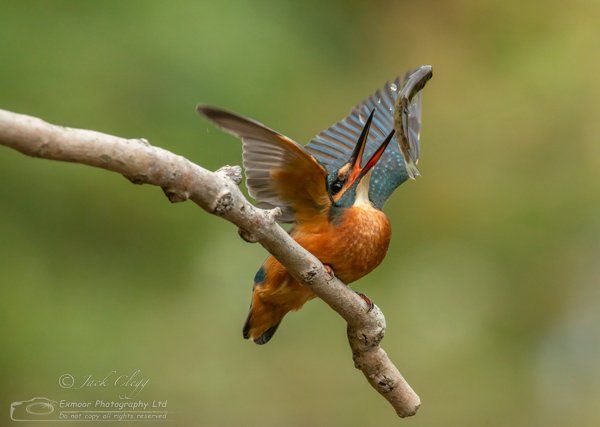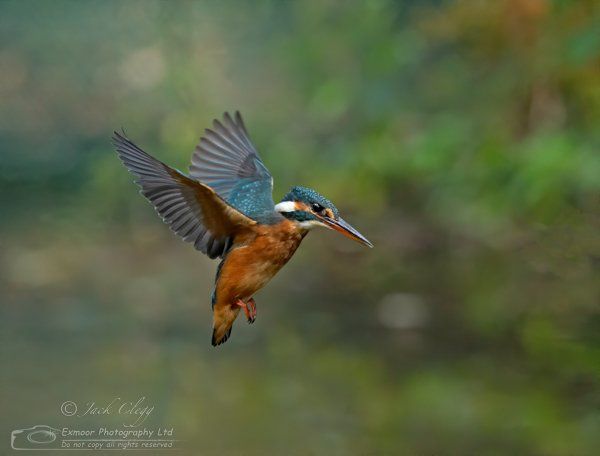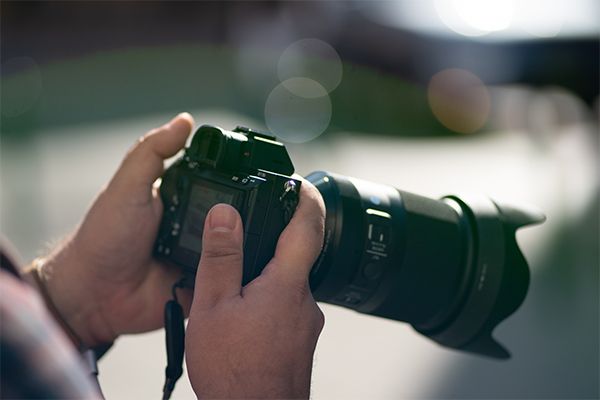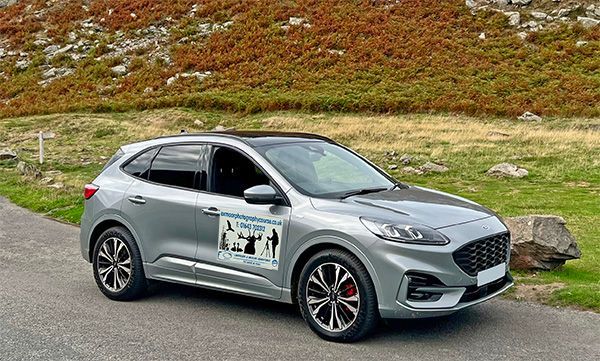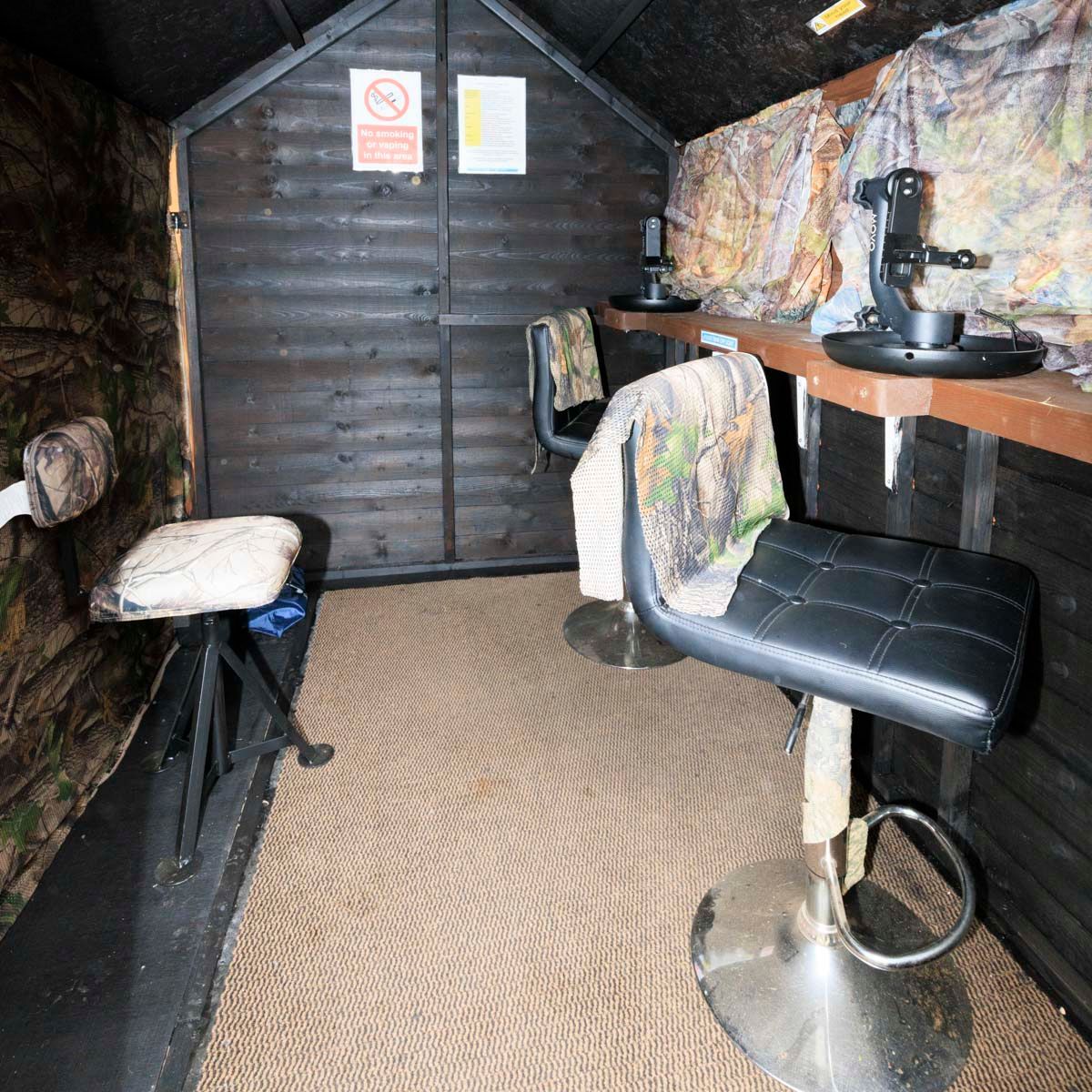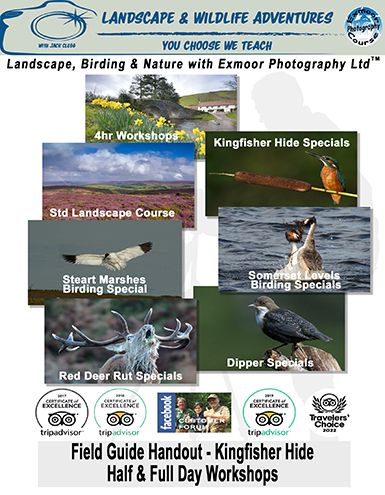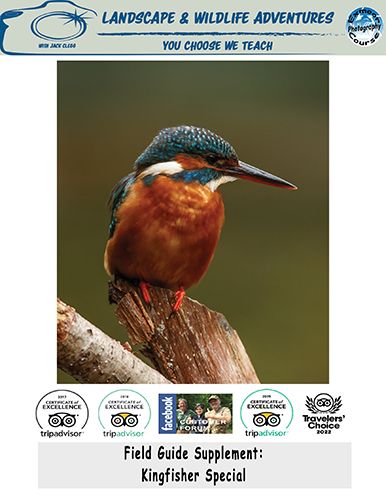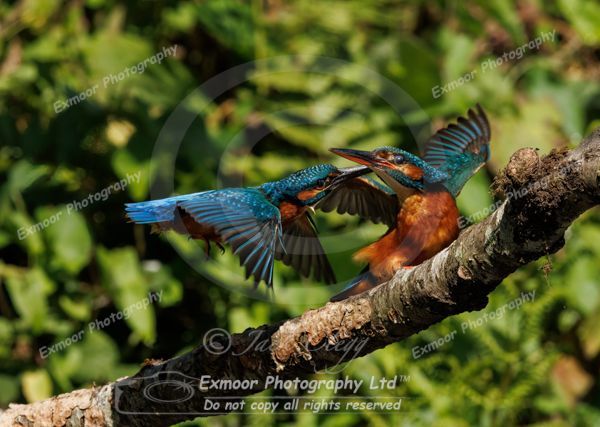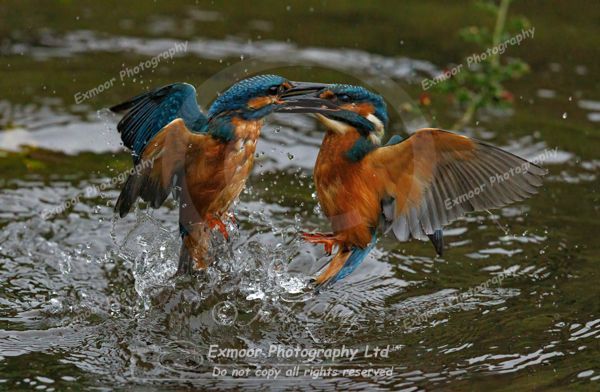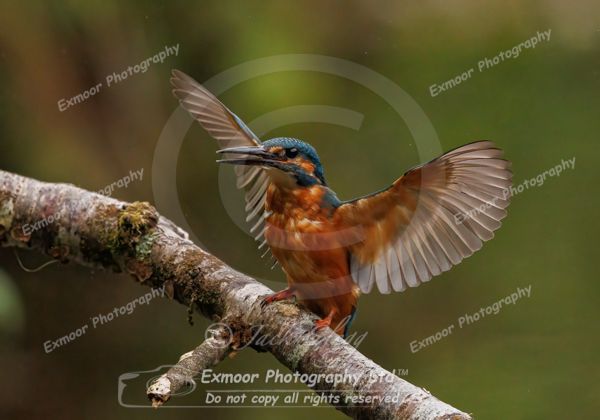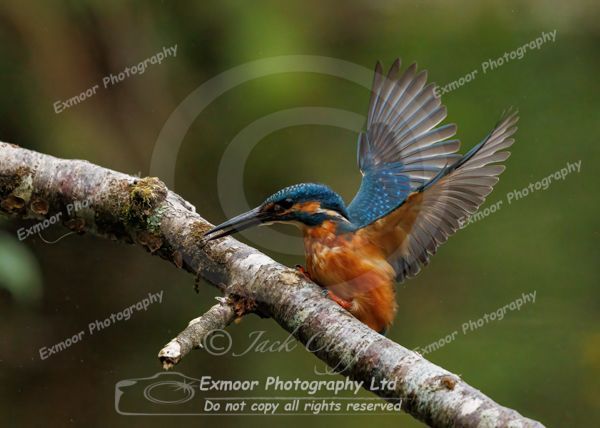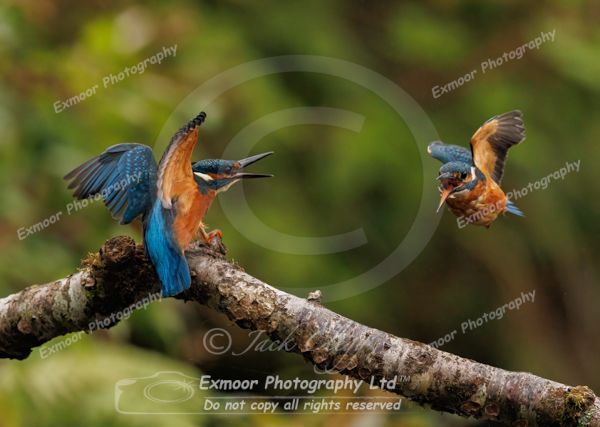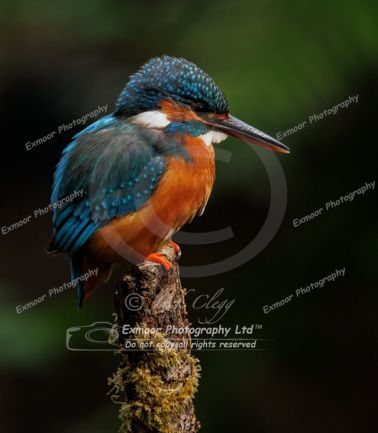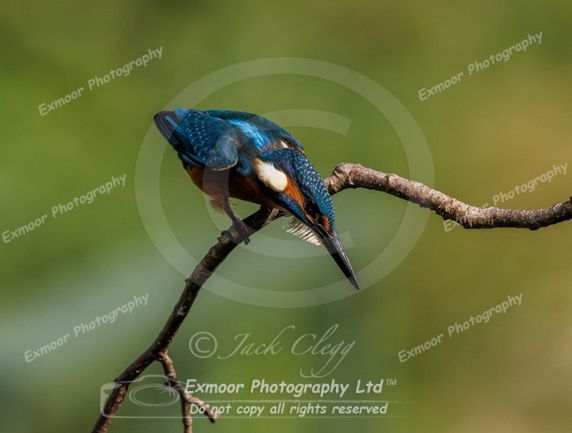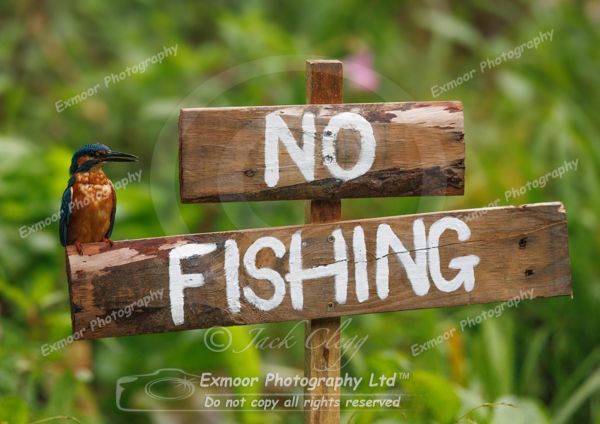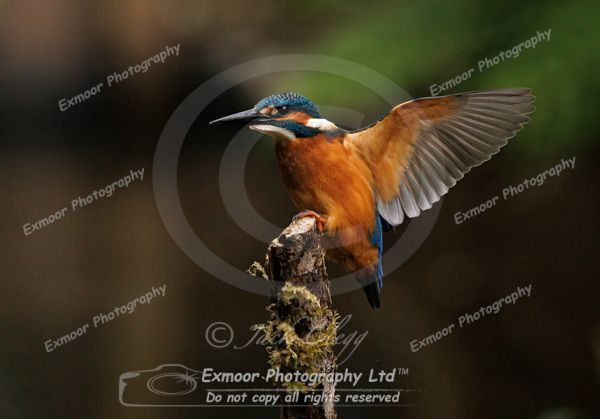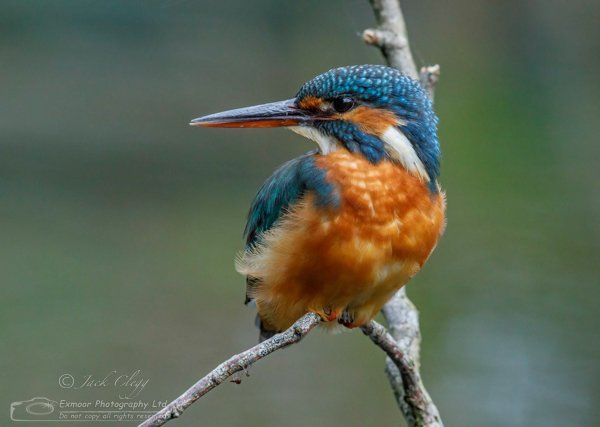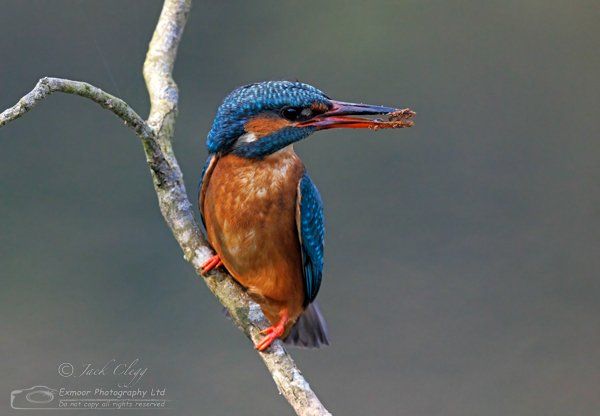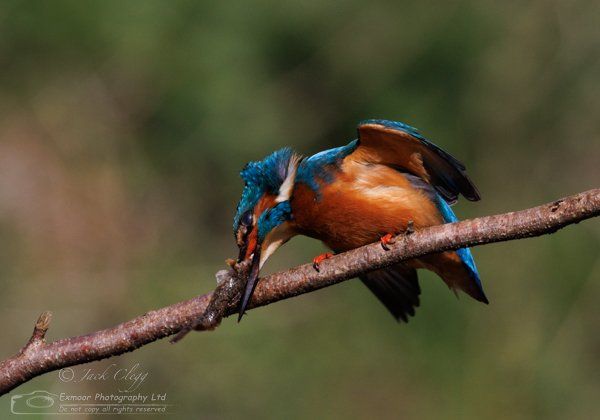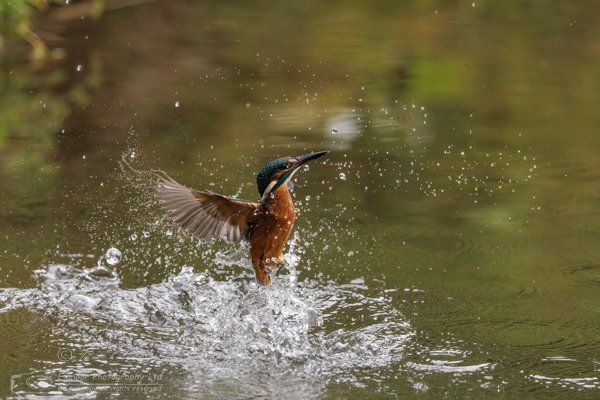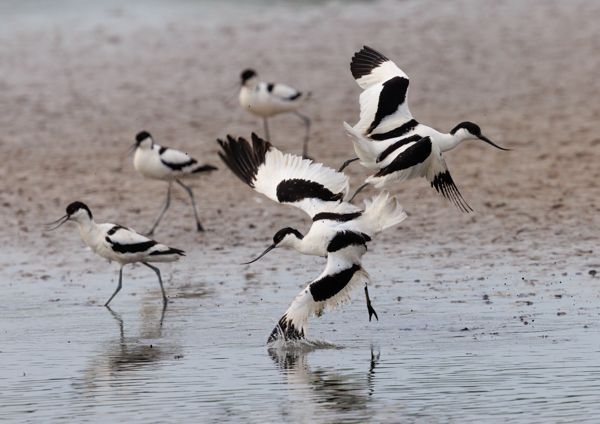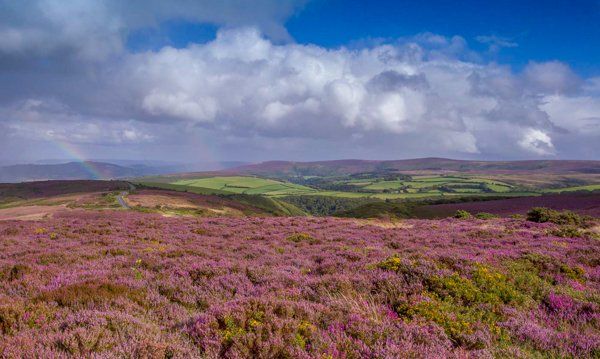Exmoor Photography Kingfisher Hide Special - Info Page
Exmoor Wildlife Photography Course
Kingfisher Hides in Somerset with the experts, UK. Photograph the stunning Kingfishers from our bespoke wooden hide situated on private land overlooking a tranquil stretch of river.
THIS WORKSHOP IS NOT FOR COMPLETE BEGINNERS-PLEASE SEE FAQS BELOW
A working knowledge of the exposure triangle is essential.
Latest news: NOW BOOKING 2026 SEASON (JULY and AUGUST ONLY)
Discount: Book Second Session for yourself (same season) at ONLY £99.00pp
We do not take other professional photographers under any circumstances, NO EXCEPTIONS
NB: we do not respond to enquires from professional photographers or similar businesses, please DON'T waste our time or yours.
Kingfisher Hide Booking Online now available.
IMPORTANT NOTICE: please read the following & FAQs below.
- Equipment: DSLR or Mirrorless only and at least a 400 mm - 500 mm lens (with tripod collar). We cannot fit bridge or compact cameras, due to fixed gimbal mounts in the hide. Therefore, we cannot take clients with bridge or compact cameras on this workshop.
- The hide: This is an unaccompanied hide. Jack will help with preparation for your session, including expert advice on optimal camera settings for Kingfisher photography and fieldcraft guidance, during the morning briefing.
- To avoid disturbance, Jack will then leave you in the hide, usually after the first Kingfisher has visited and gone.
- Professional Photographers: as with all our workshops we do not take professionals.
- Kingfisher Welfare: Although the Kingfishers have successfully bred on the river for several years now it must be understood that there is no guarantee. If unsuccessful the vouchers can be carried over or used against another workshop subject to any price difference. The birds welfare is always our priority. This is NOT a baited (dive tank) site.
FAQS:
Price & Group Size:
- Price: £129.00 pp (payment on booking)
- Group Size 2 maximum
- Discount: If you book a 2nd session (same season) price is £99.00 pp applies to second session only.
Workshop Schedule, Duration & Location:
- Days: Daily except Wednesday & Sunday
- When: July & August Only see Availability Tab
- Duration: 8 hours
- Start Time: 6.00 am
- Finish Time: 2.00 pm
- (Includes travel time to hide approximately 20 mins)
- Location: Somerset (private river)
What is Included:
- Easy to access bespoke wooden hide.
Please note this is an unaccompanied hide. Jack will help with preparation for your session, including expert advice on optimal camera settings for Kingfisher photography, fieldcraft guidance, and information about hide rules.
To avoid disturbance, Jack will then leave you in the hide, usually after the first Kingfisher has visited and gone.
Field Guide: Brand new workshop field guide booklets (yours to keep).
Plus: Kingfisher how to photograph supplement (yours to keep).
Cheat Sheet: We also supply every client a Kingfisher specific cheat sheet, during the morning briefing.
Refreshments Tea, Coffee & Cakes.
Transport to location.
Equipment Requirements:
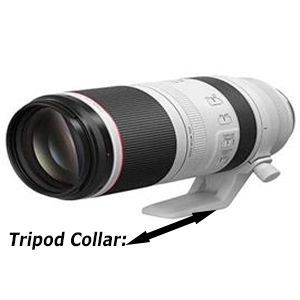
Ideally you have the following equipment for this workshop:
- Camera: D-SLR or mirrorless with a frame rate of at least 7fps is preferable.
- Lens: 400 mm – 500 mm
- If using a mirrorless system micro 4/3 you will need at least a 400mm lens (a 300mm is ok but NOT recommended).
- Popular examples: Sigma 150-600 mm, Canon RF 100-500 mm and Nikon Z 180-600 mm.
- If you are not sure, please ask Jack for advice. We also have cameras and lenses you can hire if required, must be booked prior to course, subject to availability.
- Hide Mounts: We have two gimbal heads mounted in the hide for your use. It is essential that your lens has a tripod mounting collar.
- SORRY WE CANNOT FIX 'BRIDGE CAMERAS' IN THE HIDE. THEREFORE, WE CANNOT TAKE CLIENTS WITH BRIDGE CAMERAS ON THIS WORKSHOP.
How To Book & Weather:
- Booking: See Book Now Tab
- You will be emailed comprehensive instructions, with your welcome pack and booking confirmation.
- Weather: In the event of a bad weather postponement, we will re-book your workshop ASAP.
- The meet & greet is at Exmoor Photography, Hillbrook, Marshfield Rd, Minehead, TA246AJ (and return). 'The Gateway to Exmoor National Park'
- These workshops must be booked in advance.
What Our Customers Say:
Contact Us
Exmoor Photography Course
Landscape, Birding & Nature Photography Lessons
Choose Your Course: You Choose We Teach
(Workshops & some Specials can be booked as Exclusive 1:1)

